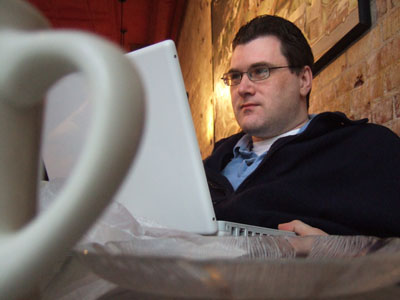Wired News:
Are Spam Blockers Too Strict? Estimates vary as to how large a problem "false positives" represent. JupiterResearch estimated that in commercial mailings, 12 percent of marketing e-mail was blocked because of false positives in 2005, down from 18 percent in 2004.
Ken Schneider, chief architect with Symantec, which sells spam-filtering tools used by most large U.S. internet service providers, says false positive rates are actually much lower than the Jupiter research indicates. It's hard to get an exact figure, however, because determining what qualifies as spam is a matter of opinion. What marketers call "false positives" may be messages that aren't technically spam, but nonetheless do not contain information that end users want.
"There's a very gray notion of what's spam and what's not," Schneider said.
Symantec also sells spam-filtering tools for the enterprise, such as law firms, for spam blocking on SMPT gateways.
Some of the oldest tactics for spotting junk e-mail still work. Spam filters isolate bulk mailers who generate a lot of complaints. ISPs and filtering firms also maintain blacklists of known spammers and "whitelists" of legitimate bulk e-mailers.
I've seen firms engaged in mass litigation get caught in the mass e-mail spam trap. These non-marketing bulk, case related messages which are necessary communication in conducting ongoing litigation can have as many as 60 or sometimes over a hundred recipients. The only recourse is to list the email address and domains being blocked on your own local "whitelist" of legitimate bulk e-mailers.
AOL and other have proposed a program called CertifiedEmail in which senders would pay a fee to be whitelisted at the ISP level.
To join the CertifiedEmail program, e-mail senders must meet accreditation criteria and pay $200 to $400, plus a quarter of a cent per e-mail. In exchange, AOL guarantees the e-mails will get to a user's inbox and will bear a seal identifying them as certified messages.
AOL says it plans to launch the service in the next month. Goodmail said it is also working with Yahoo on a certified e-mail program.
Under current laws, opponents of certified e-mail can probably do little to prevent its adoption, said David Sorkin, a professor at The John Marshall Law School in Chicago.
Sorkin doubts the program will be popular with e-mail users. Even so, given the strides ISPs have made in reducing inbox clutter, a few "certified" marketing messages aren't his biggest worry.
"Personally I'm much more concerned about missing a few legitimate messages than figuring out what to delete," he said.
When you are engaged in the practice of law, can you afford to miss even one legitimate e-mail?
Technorati Tags:
Law Firm IT, Spam Filters, Spam Blacklists

